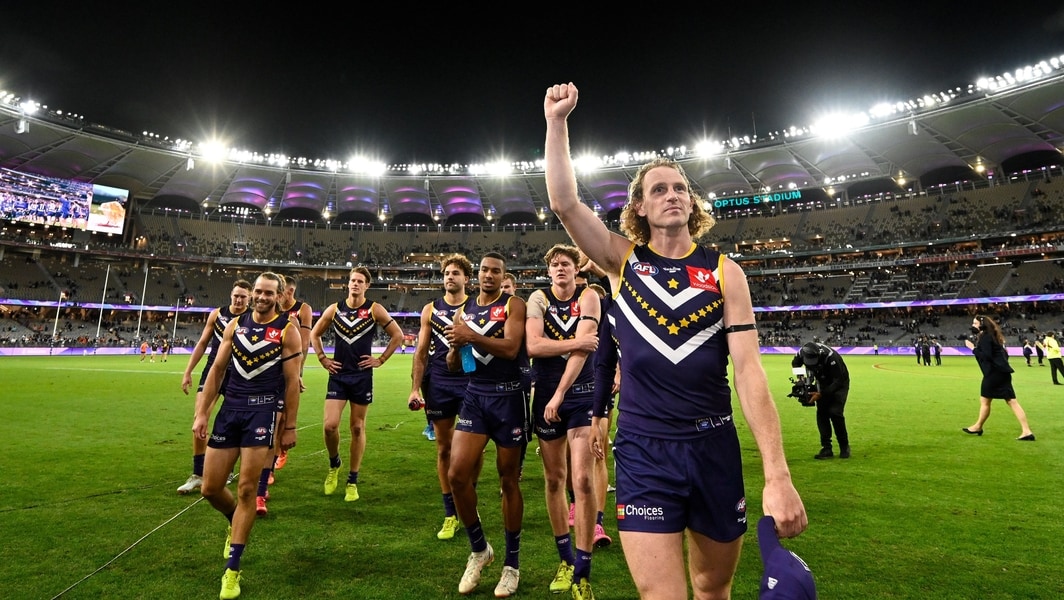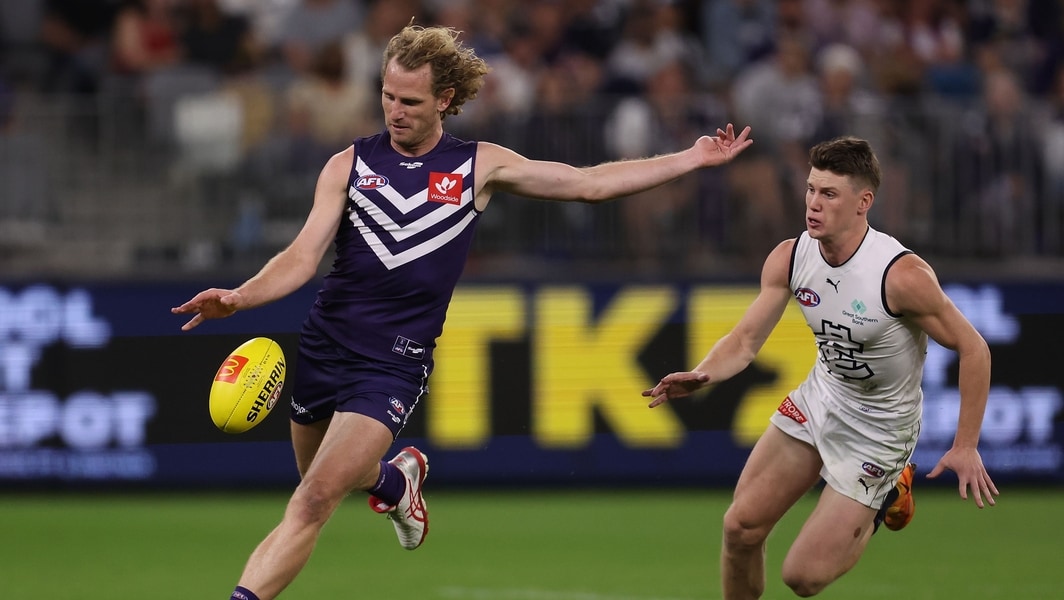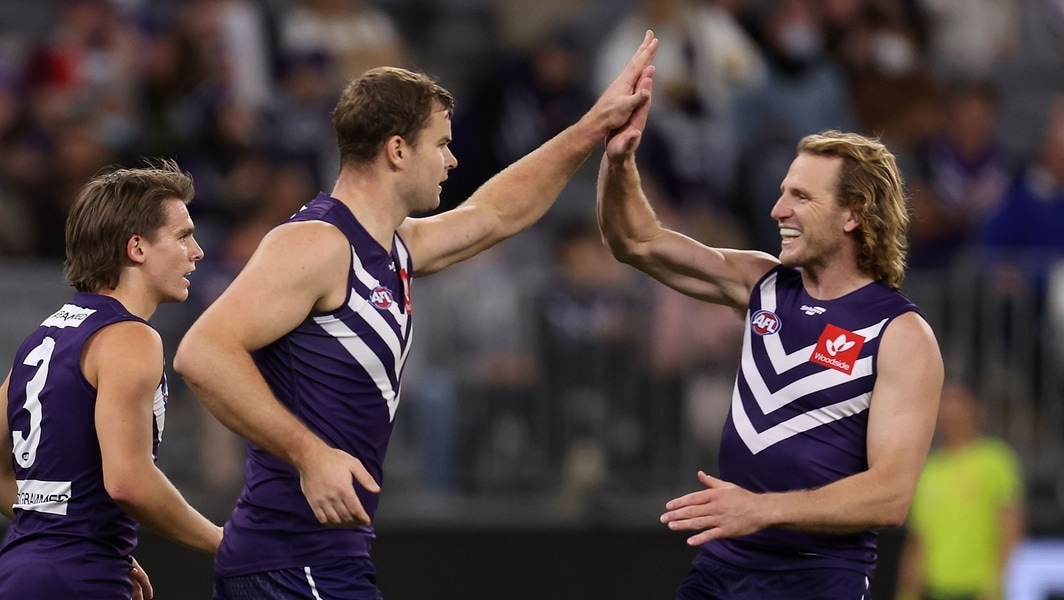In the era of the football department soft cap and doing more with less, Fremantle champion David Mundy has carved out a dual role for himself that is making him more and more valuable as the twilight of his career stretches.
Mundy has become known as an "on-field coach" for Fremantle under Justin Longmuir, but it's not something that happened by accident as he racked up historic milestones in recent seasons.
Turning 37 next month and with coaching courses under his belt, Mundy is the same age Longmuir was when he entered his ninth season of coaching in various assistant roles.

But Mundy's extra time as a player, which will on Saturday see him move into 10th on the all-time VFL/AFL games played list, has not stopped him developing a coach's eye that the Dockers can utilise in a unique way.
"He comes and sits in at times in our coaches' strategy meetings, and he's got a really good understanding of the game," midfield coach Josh Carr told AFL.com.au this week, ahead of Mundy's 366th game.
"He's more a sponge than anything, trying to learn from the coaches and get an understanding of how we think and what we talk about.
"Then it's really easy when we deliver the strategy to the playing group, he can help deliver that. He's in those conversations with the players all the time and able to give context to why we're doing something or why we've changed something."
Carr said Mundy was the best player he'd come across as an on-field coach in his time in football, with the midfielder's ability to pick up on opposition strategy within games a particular strength.
"He can see the gaps that we need to fix but also expose different areas of what the opposition are trying to implement out there," Carr said.
"He sees that and he's able to act on it, and when I come down at quarter-time, half-time and three-quarter time, the players are already discussing exactly what we're talking about in the box, or what I'm seeing.
"He's not on his own with that. Caleb Serong is a sponge with Dave, and he's like a young Dave in the way he's picking things up."

Mundy's academic strength, having completed an honours degree in marine science, is another factor in his impact directing and influencing teammates.
The 2010 club champion has an ability to retain information, filter it, and then deliver the message to teammates in an ideal way, Carr said.
For Mundy, the ability to contribute on game day as an on-field coach and help guide the club's rapidly emerging young talent is a big part of his value in 2022, in addition to the high standard he has maintained as a player.
"I remember coming through as a young fella myself and the direction I had from guys like Peter Bell at the time and Shaun McManus, Troy Cook and Paul Hasleby was immense," he said this week.
"It made me feel more comfortable in a pretty intimidating environment.
"Through experience I feel like I see the game pretty well, I understand what we're trying to do pretty well and pick up opposition trends OK, so I try to help the team as best I can in those moments."
Mundy's potential as a coach when his playing days eventually finish is no secret to the rest of the competition, with West Coast coach Adam Simpson enquiring about the veteran moving into coaching as far back as four years ago when he was out of contract.

He has since broken through the 300-game and 350-game milestones, overtaken champion Matthew Pavlich as Fremantle game's record holder, and now reaches a new mark that snuck up on him this week, tying level with Footscray and Fitzroy great Bernie Quinlan on 366 games.
Putting Mundy's achievement into perspective, Quinlan travelled 7,130km interstate for matches in his career from 1969 to 1986, travelling to the SCG five times.
Mundy has travelled 885,337km in his career so far, more than double any player in the top 10 games played list, with Sydney champion Adam Goodes the closest on 373,452km.
As Fremantle pushes to emerge from a six-year run outside finals, Carr said the club owed Mundy plenty for the role he has played not only as a midfielder but also as a teacher to players like Brownlow Medal contender Andrew Brayshaw and Serong.
"I think the development of those younger guys from three years ago to now, they wouldn't have been able to develop their game without the support of Dave," Carr said.
"The improvement within the group, he can definitely say that's part of his legacy."


